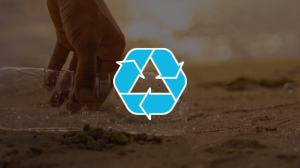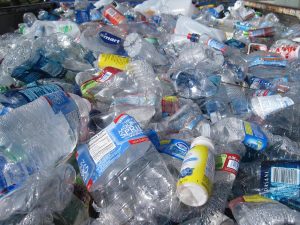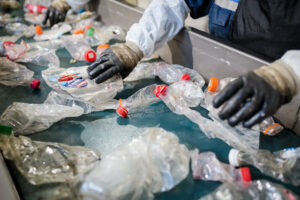Plastics Had Been Falling Out of Favor. Then Came the Virus
With health concerns at the top of consumers’ minds, companies are abandoning eco-conscious policies and re-embracing single-use items.
It took one week after the first U.S. case of Covid-19 with no overseas connection for Starbucks Corp. to temporarily ban customers from bringing in reusable coffee mugs. Judith Enck, a former regional administrator for the Environmental Protection Agency, was disappointed. Public health comes first, of course, but as the founder of the grassroots Beyond Plastics project, Enck had her doubts that returning to disposable cups would make anyone safer. Currency, for instance, is a notorious germ-carrier. “Will Starbucks now stop accepting cash?” she says.
These are nervous times for activists working to wean the world off plastics. Until the novel coronavirus started its spread across the globe, 2020 appeared to be a year when meaningful plastic-use restrictions would finally take hold. A growing list of consumer companies—including Coca-Cola Co., which produces about 117 billion plastic bottles each year—had set targets to reduce their reliance on plastic packaging. France prohibited single-use plastic plates, cups, and cutlery starting January 1, and England will enact restrictions on plastic straws and stirrers starting in April. On March 1, New York joined a number of other cities around the world in banning the distribution of plastic shopping bags by retailers.
The virus plays right into the industry’s strong suits: disposability and hygiene. A new report released by BloombergNEF last week found that, in the short run at least, the fears of plastics opponents might be valid. “Concerns around food hygiene due to Covid-19 could increase plastic packaging intensity, undoing some of the early progress made by companies,” the report stated. Researchers found the greatest spikes in demand for face masks and the thin film used in plastic wraps.



